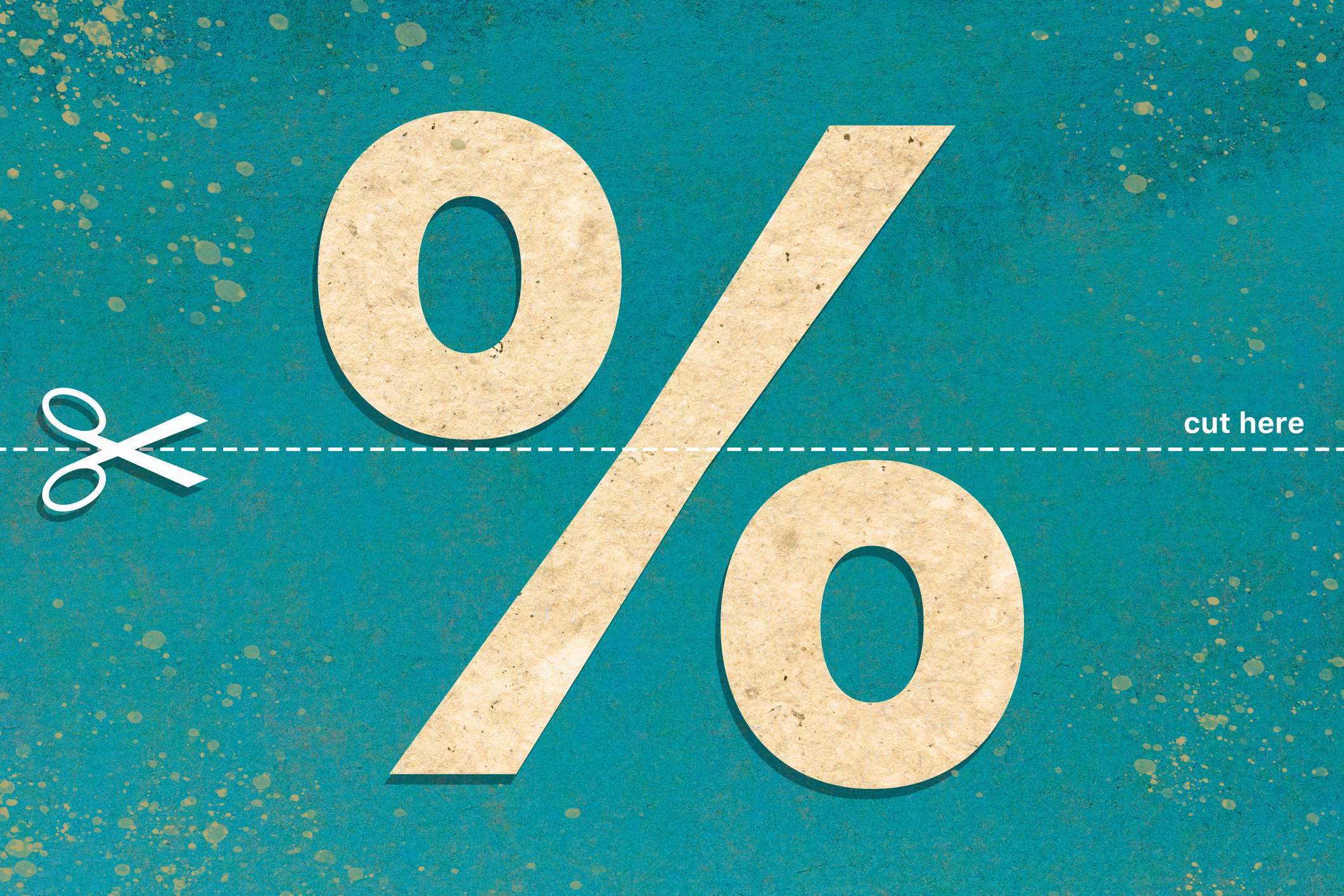Best Blue Chip Stocks: 21 Hedge Fund Top Picks
Blue chip stocks dominate the list of hedge funds' most popular equity investments.

Profit and prosper with the best of Kiplinger's advice on investing, taxes, retirement, personal finance and much more. Delivered daily. Enter your email in the box and click Sign Me Up.
You are now subscribed
Your newsletter sign-up was successful
Want to add more newsletters?

Blue chip stocks, thanks to their massive market capitalizations and deep liquidity, are a natural home for hedge funds and other large pools of institutional capital.
And since hedge funds are the putative smart money, who wouldn't want to know which blue chip stocks they're chasing with their capital?
True, hedge funds collectively have a rather poor long-term track record vs the broader market. It should also go without saying that not all blue chip stocks are created equal.
From just $107.88 $24.99 for Kiplinger Personal Finance
Become a smarter, better informed investor. Subscribe from just $107.88 $24.99, plus get up to 4 Special Issues

Sign up for Kiplinger’s Free Newsletters
Profit and prosper with the best of expert advice on investing, taxes, retirement, personal finance and more - straight to your e-mail.
Profit and prosper with the best of expert advice - straight to your e-mail.
Yet there's still something irresistible about knowing what hedge funds have been up to. And even if the industry tends to generate disappointing returns, you've got to give it credit when credit is due.
Big-time investors are willing to pay up for complicated strategies offering exposure to uncorrelated assets. So it's not necessarily possible to tell from the outside if a hedge fund is providing its clients with the performance they expect.
It's also important to know that hedging strategies, by definition, limit upside when stocks are rising. That helps explain the industry's tendency to underperform in a bull market.
By the same token, however, hedging strategies limit downside when everything is selling off. And goodness knows investors saw plenty of red on their screens the last time stocks tanked.
"Despite the challenges from a bear market, hedge funds delivered resilient performance in 2022," notes Barclays Capital Solutions. "In a year when the MSCI World Index fell 18%, hedge funds captured only a fraction of the drawdown, thus offering the best downside protection since the dot-com bubble burst."
Cut to today, however, and a three-year bull market has hedge funds trailing the main benchmark for U.S. equity performance once again.
Blue chip stocks: timing is everything
Indeed, the Barclay Hedge Fund Index delivered a total return (price change plus dividends) of 12.6% in 2025. The S&P 500, by comparison, generated a total return of nearly 18% last year. Hedge funds lagged the broader market by even wider margins in 2023 and 2024.
We won't know how hedge funds are dealing with the current market environment until they disclose their first-quarter buys and sells in mid-April. But we do know what they were up to in Q4 thanks to a recent batch of regulatory filings.
As usual, hedge funds were heavily invested in most of the market's biggest and bluest of blue chip stocks – particularly Dow Jones stocks. Indeed, 9 of the 21 names listed below are components of the blue-chip barometer.
That's partly a function of Dow stocks' massive market caps and attendant liquidity, which, as noted, provide ample room for institutional investors to build or pare large stakes.
Big-name blue chip stocks also carry lower levels of reputational risk for professional money managers. It's a lot easier to justify holding a large stake in a Dow component than a no-name small-cap stock if restive clients start grumbling about their returns.
What's interesting about the latest data is how hedge funds have become more selective regarding the almighty Magnificent 7 stocks. While some artificial intelligence (AI) plays enjoyed massive net inflows, others were hit with net selling.
Have a look at the chart below to see hedge funds' 21 top blue chip stock picks as of the end of Q4.
Company (Ticker) | Number of hedge funds holding | Net change in hedge fund share ownership |
|---|---|---|
Amazon (AMZN) | 987 | 158,302,836 |
Microsoft (MSFT) | 944 | -6,136,922 |
Alphabet (GOOGL) | 876 | -12,638,847 |
Nvidia (NVDA) | 870 | 149,286,310 |
Meta Platforms (META) | 807 | 52,029,064 |
Apple (AAPL) | 766 | 1,816,064 |
Broadcom (AVGO) | 691 | 4,855,466 |
Visa (V) | 669 | 9,412,797 |
JPMorgan Chase (JPM) | 651 | -4,881,714 |
Taiwan Semiconductor Manufacturing (TSM) | 618 | -529,531 |
Berkshire Hathaway (BRK.B) | 612 | 8,484,330 |
Eli Lilly (LLY) | 590 | 4,613,769 |
Tesla (TSLA) | 567 | 3,804,561 |
Johnson & Johnson (JNJ) | 558 | -2,214,654 |
Mastercard (MA) | 554 | 73,822,298 |
Walmart (WMT) | 554 | 23,265,804 |
Exxon Mobil (XOM) | 547 | -5,751,110 |
UnitedHealth Group (UNH) | 539 | 6,967,885 |
Netflix (NFLX) | 537 | -53,476,082 |
Bank of America (BAC) | 527 | -35,814,218 |
Oracle (ORCL) | 517 | -23,702,500 |
Source: WhaleWisdom and the Securities and Exchange Commission.
Related Content
Profit and prosper with the best of Kiplinger's advice on investing, taxes, retirement, personal finance and much more. Delivered daily. Enter your email in the box and click Sign Me Up.

Dan Burrows is Kiplinger's senior investing writer, having joined the publication full time in 2016.
A long-time financial journalist, Dan is a veteran of MarketWatch, CBS MoneyWatch, SmartMoney, InvestorPlace, DailyFinance and other tier 1 national publications. He has written for The Wall Street Journal, Bloomberg and Consumer Reports and his stories have appeared in the New York Daily News, the San Jose Mercury News and Investor's Business Daily, among many other outlets. As a senior writer at AOL's DailyFinance, Dan reported market news from the floor of the New York Stock Exchange.
Once upon a time – before his days as a financial reporter and assistant financial editor at legendary fashion trade paper Women's Wear Daily – Dan worked for Spy magazine, scribbled away at Time Inc. and contributed to Maxim magazine back when lad mags were a thing. He's also written for Esquire magazine's Dubious Achievements Awards.
In his current role at Kiplinger, Dan writes about markets and macroeconomics.
Dan holds a bachelor's degree from Oberlin College and a master's degree from Columbia University.
Disclosure: Dan does not trade individual stocks or securities. He is eternally long the U.S equity market, primarily through tax-advantaged accounts.
-
 8 Boring Habits That Will Make You Rich in Retirement
8 Boring Habits That Will Make You Rich in RetirementThese mundane activities won't make you the life of the party, but they will set you up for a rich retirement. Discover the 8 boring habits that build real wealth.
-
 QUIZ: Are You Ready To Retire At 55?
QUIZ: Are You Ready To Retire At 55?Quiz Are you in a good position to retire at 55? Find out with this quick quiz.
-
 10 Decluttering Books That Can Help You Downsize Without Regret
10 Decluttering Books That Can Help You Downsize Without RegretFrom managing a lifetime of belongings to navigating family dynamics, these expert-backed books offer practical guidance for anyone preparing to downsize.
-
 The Merger Market is Heating Up. Here's How to Cash In
The Merger Market is Heating Up. Here's How to Cash InInvesting in takeover deals can be a low-volatility way to diversify your portfolio.
-
 Vanguard Cuts Fund Fees Again. Here's Why That's Important for You
Vanguard Cuts Fund Fees Again. Here's Why That's Important for YouVanguard recently cut fees on dozens of ETFs and mutual funds, which is great news for investors. Here's why.
-
 Ask the Editor, February 27: Questions on Tax Returns and Decedents
Ask the Editor, February 27: Questions on Tax Returns and DecedentsAsk the Editor In this week's Ask the Editor Q&A, Joy Taylor answers questions on how to file a tax return when someone has died and resources you can use to find more help.
-
 Will Your Children's Inheritance Set Them Free or Tie Them Up?
Will Your Children's Inheritance Set Them Free or Tie Them Up?An inheritance can mean extraordinary freedom for your loved ones, but could also cause more harm than good. How can you ensure your family gets it right?
-
 I'm a Financial Adviser: This Is the Real Key to Enjoying Retirement With Confidence
I'm a Financial Adviser: This Is the Real Key to Enjoying Retirement With ConfidenceA resilient retirement plan is a flexible framework that addresses income, health care, taxes and investments. And that means you should review it regularly.
-
 Life Loves to Throw Curveballs, So Ditch the Rigid Money Rules and Do This Instead
Life Loves to Throw Curveballs, So Ditch the Rigid Money Rules and Do This InsteadSome rules are too rigid for real life. A values-based philosophy is a more flexible approach that helps you retain confidence — whatever life throws at you.
-
 Big Nvidia Numbers Take Down the Nasdaq: Stock Market Today
Big Nvidia Numbers Take Down the Nasdaq: Stock Market TodayMarkets are struggling to make sense of what the AI revolution means across sectors and industries, and up and down the market-cap scale.
-
 Trump's New Retirement Plan: What You Need to Know
Trump's New Retirement Plan: What You Need to KnowPresident Trump's State of the Union address touched upon several topics, including a new retirement plan for Americans. Here's how it might work.